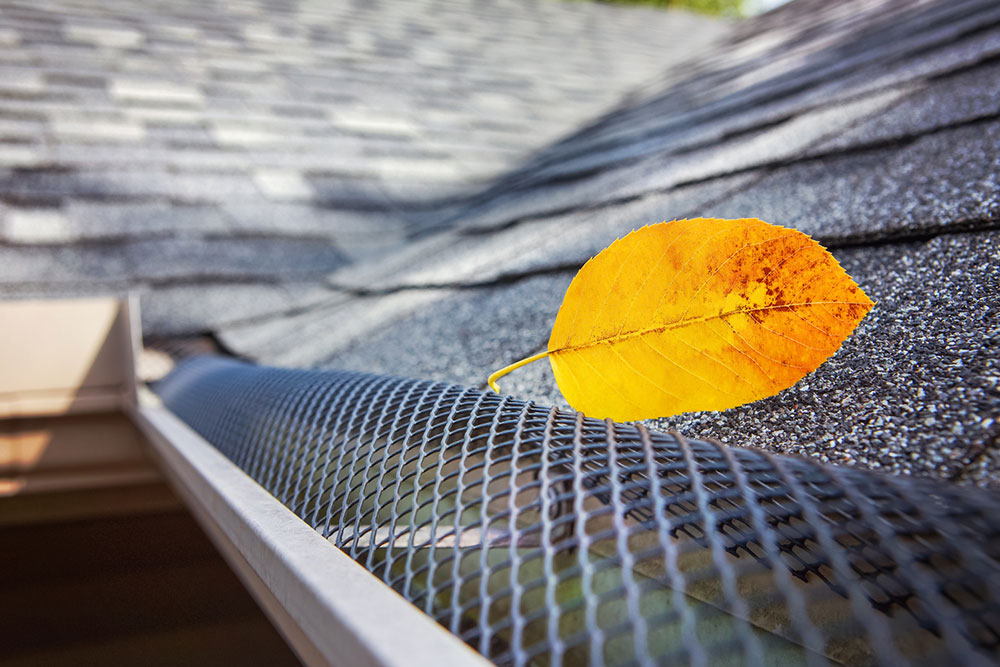Gutter Covers – Types, Costs, and Installation Tips
Gutter covers, or guards, are an excellent way to ensure that the gutters are well-maintained and clog-free. The best guards can make maintenance a breeze and efficiently keep the water flowing freely. There are many options available in the market that are easy to assemble yourself. However, it is always best to research beforehand to ensure everything goes as planned. Here are some tips and estimated costs for gutter cover installation.

Understanding gutter guards
Gutter covers, also known as leaf relief gutter guards, prevent leaves, debris, rain, pine needles, and other dust particles from collecting on the roof. The primary objective of these covers is to allow the uninterrupted flow of water and prevent blockages. However, it is important to note that regular cleaning of the guards is still necessary to avoid clogging up debris, even with the use of gutter guards.
Types of gutter guards
Here are some popular options for gutter guards available in the market.
- Brush gutter guards
They are essentially big pipe cleaners with stiff bristles attached to them. When placed inside the gutter, the bristles are pointed upwards to trap any debris that could collect there. These gutter guards are affordable and easy to install. However, they require more frequent cleaning compared to some of the other available options. - Foam gutter guards
These are also installed inside the gutter. The foam allows water to flow through the gutter easily while trapping debris. These are also affordable DIY options for a home project, however, they come with limitations, like an average water filtration system. Therefore, it is recommended to weigh the pros and cons before making a decision. - Screen gutter guards
These guards are designed to sit on top of gutters and are made of metal sheets or UPVC with perforated holes. They are considered more effective than the previous two options, and although slightly more expensive, they are worth the investment for their superior performance. - Micro mesh guards
They are also like screens but have smaller holes, making them more efficient. They are generally considered the best option for overall protection compared to the above types. However, they are not very DIY-friendly and require professional installation. - Reverse curve guard
These types of guards also require professional help, but they are effective at protecting against debris collection.
Prep for gutter cover installation
Whenever one decides to proceed with the installation, there are some things that one should keep in mind that can help the process go smoothly.
- Examine
Before installation, a quick inspection of the roof, including the gutter systems and shingles, is absolutely essential. Some roofing materials, such as metal roofs, may cause excess water to overflow compared to asphalt shingles. During the examination, it is important to ensure that the gutter systems are in good condition and not damaged, as this can lead to further issues. - Secure the footing
After the examination, one can begin the installation process. However, one must ensure that the ladder is placed on stable and flat ground to prevent any mishaps or accidents. - Clean the gutters
Before installing the covers, it is crucial to follow this important step. Thoroughly clean the gutters and then pour water into them to ensure that the water flows out efficiently without any blockages. Also, check for any leaks to ensure that there are no other issues later on. - Choose the right cover
When choosing the right gutter covers, there are several factors that need to be considered. The budget and the specific needs should be taken into account. If one’s planning to install the gutter covers on their own, the ease of installation should also be a key factor to consider. Look for options that do not require professional assistance and can be installed at home within a budget. - Read instructions
Each product includes an instruction card that provides details of the DIY process. Make sure to read through the instructions carefully and follow them precisely. This will reduce the likelihood of making mistakes and help eliminate any issues during the installation. - Get the right tools
As one reads through the instructions, take notes of the tools required for the installation. Before starting the process, make sure one has all the necessary equipment within reach. Some of the basic tools that may come in handy include a screwdriver, a toolbelt, a pair of gloves, and a sturdy ladder. Depending on the task, one may also need additional tools such as a power drill, clamps, or even a saw.
Costing of installation
The cost of installing gutter guards depends on various factors, such as the amount of product required, the type of gutter guard, and whether professional help is needed for installation. This can lead to fluctuations in the cost. According to some reports, the average cost ranges between $1,000 and $2,000. To understand this better, the average cost per linear foot of material is between $5 and $10, which translates to around $0.50 to $1.00 per square foot of a home. Therefore, the size of the home is a determining factor for the overall cost. It is advisable to consult a gutter guard professional near you who can help provide better and practical advice on installation and cost-related queries.